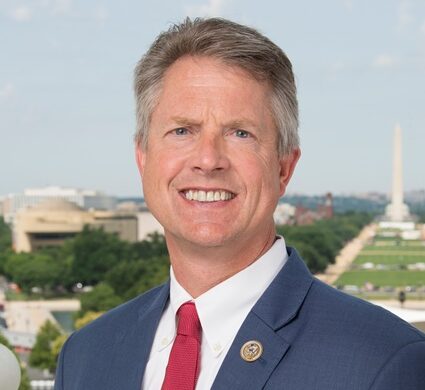Kansas 1st District Congressman Roger Marshall says he supports President Donald Trump’s executive order regarding police reform.
The plan leverages grant funding from the Justice Department and encourages law enforcement agencies and departments to adopt the standards. Marshall is the co-sponsor on H.R. 7278, the companion bill to Senate legislation on policing reform. Marshall, who joined KMAN in a Friday interview, says the bill provides more training for police officers, along with more transparency and accountability.
“What this legislation is doing is raising the bar so if an officer does something deemed wrong, that record will follow him if he applies for another police department job,” he said.
If adopted, the measure would require departments to report on Use of Force and No-Knock warrants (search warrants authorizing police to enter certain premises without first knocking and announcing their presence or purpose prior to entry). It also requires agencies to maintain and share disciplinary records, make lynching a federal crime, provide $500 million for state and local agencies to equip all officers with body cameras and provide $225 million in grant funding for de-escalation training.
Marshall says he wants to see more minority representation in policing, but says efforts are already underway to encourage that. While concerned a few bad cops may do bad things, as evidenced by the George Floyd murder in Minneapolis last month, Marshall, the son of a former police chief, says he does not believe there is systemic racism in policing.
“I knew so many police officers and today I know many police officers. I don’t consider any of them racist. I don’t believe there is systemic racism,” he said. “What I can’t imagine is this defunding. Who in the world would think defunding police officers is what we should be doing? We should be spending more money on them.”
The bill was introduced in Congress June 18 by the House Judiciary Committee with 122 GOP cosponsors and will likely get a debate on the Senate floor sometime this week.
Among other provisions, this bill would require reporting on Use of Force and No-Knock Warrants, require law enforcement agencies to maintain and share disciplinary records, make lynching a federal crime, provide $500 million for state and local agencies to equip all officers with body cameras, and $225 million in grant funding for de-escalation training.
COVID-19 relief for agriculture
As the economic recovery continues from the COVID-19 pandemic, Marshall says Congress has been passing bills to help those individuals and businesses impacted by COVID-19 shutdowns, including agriculture.
Among them is a $19 billion program specifically being rolled out for farmers.
“Part of that is to help the cattle industry, the row-crop industry as well. One of the things I’m really proud of is the farmer to market ,direct to market program going on to ensure we get more food to people,” he said.
Marshall says Congress will also have programs to help feed students over the summer who relied on the free meals during the school year. In terms of a second stimulus package for the public, Marshall says that is yet to be determined.
“Only half of the $2 trillion Congress funded has hit Main Street so far. We just gave Kansas $82 million for more testing, $1.25 billion (in CARES Act funding) the end of April. That money has not been distributed yet,” he said.
Governor Laura Kelly’s SPARK economic recovery team is in the process of coordinating how those dollars will be divided up at the local levels. Riley County is slated to receive $15 million, Pottawatomie County will receive about $4.9 million and Geary County will receive $6.4 million. That money has to be spent by the end of the year.
Marshall says the most important aspect federal government is eyeing is liability issues. An example would be if a student got the virus while on campus, to ensure a university could not be held liable in any potential lawsuit.
Marshall estimates that the Kansas economy is about 95 percent open, while the state has largely avoided any significant peaks in new cases the last two weeks.
Riley County reported its largest spike in new cases this week, with over 40 new cases, largely due to an increased rate of testing in the region.
The full interview with Marshall is available below.
061920 — Roger Marshall interview



